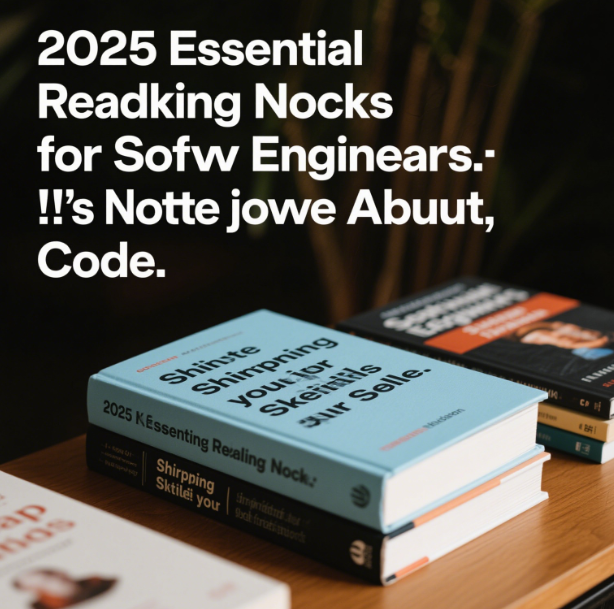In the fast-paced world of software engineering, it’s easy to fall into the trap of thinking that technical knowledge alone is the key to growth. Yes, understanding frameworks, mastering programming languages, and keeping up with the latest DevOps trends are crucial. But being a great engineer goes beyond writing clean code or optimizing queries — it’s also about how you think, how you communicate, and how you grow as a human being.
That’s why this year’s essential reading list isn’t just filled with algorithm bibles or system design manuals (although there’s some of that too). It’s a curated mix of technical reads, mindset shifters, and thought-provoking books to help software engineers evolve both professionally and personally.
Here are 8 books every developer should consider reading in 2025 — whether you’re just starting out, leading a team, or carving your own path as a digital nomad or indie hacker.
1. “The Pragmatic Programmer” by Andy Hunt & Dave Thomas
Why it matters: A timeless classic that reads like a mentor whispering best practices into your ear. Whether you’re debugging late at night or designing your next app, this book grounds you in practical wisdom that transcends languages or frameworks.
Key takeaway: Code is not just for machines — it’s for people who read it next (which might be you in six months).
2. “Designing Data-Intensive Applications” by Martin Kleppmann
Why it matters: As systems scale, so do the challenges. This book dives into the core principles behind modern data systems — covering everything from distributed databases to event-driven architectures.
Key takeaway: Understanding how data moves, mutates, and survives failure is essential if you want to build software that lasts.
3. “Deep Work” by Cal Newport
Why it matters: In a world filled with distractions (Slack pings, email, social media), the ability to focus has become a superpower. This book teaches you how to carve out time for deep, meaningful work — the kind that actually moves your projects forward.
Key takeaway: Shallow work makes you busy. Deep work makes you valuable.
4. “The Manager’s Path” by Camille Fournier
Why it matters: Thinking about moving into a tech lead or engineering manager role? This book lays out what leadership looks like at every level of engineering — from mentorship to managing teams and setting org-level vision.
Key takeaway: Leadership isn’t just about meetings and roadmaps. It’s about creating the conditions where others can thrive.
5. “The Art of Learning” by Josh Waitzkin
Why it matters: Waitzkin, a chess prodigy turned martial arts champion, explores how mastery works across disciplines. This book isn’t just for athletes or chess players — it’s for anyone trying to get better at something hard.
Key takeaway: How you learn matters as much as what you learn. Cultivate habits that help you improve sustainably.
6. “Show Your Work!” by Austin Kleon
Why it matters: As a software engineer, you probably build cool things — but do you share them? This book is a short, punchy guide on how to share your process, ideas, and projects without feeling like a self-promoter.
Key takeaway: People don’t just want finished products — they want to follow your journey.
7. “Working in Public” by Nadia Eghbal
Why it matters: If you’ve ever contributed to open source or considered launching your own project, this book offers a fascinating deep dive into the sociology of modern software collaboration.
Key takeaway: Code isn’t just about code — it’s about people, community, and the invisible labor behind public projects.
8. “Zen and the Art of Motorcycle Maintenance” by Robert M. Pirsig
Why it matters: Not your typical tech book — this philosophical journey explores the tension between rational thought and emotional experience. At its core, it’s about quality: what it means, how we recognize it, and why it matters.
Key takeaway: Engineering is both a science and an art. Never lose sight of either.
Honorable Mentions:
- “Clean Architecture” by Robert C. Martin – For when you’re ready to level up your software design thinking.
- “Range” by David Epstein – To remind you that having diverse interests can make you better at your core work.
- “Make Time” by Jake Knapp & John Zeratsky – A great toolset for balancing productivity with presence.
Final Thoughts
Reading broadly doesn’t just make you a better developer — it makes you a more thoughtful, effective, and inspired human being. And in a field that changes every year, what doesn’t change is your capacity to adapt, grow, and lead with clarity.
In 2025, let your reading list reflect more than just your profession. Let it reflect your path, your pace, and your perspective.



